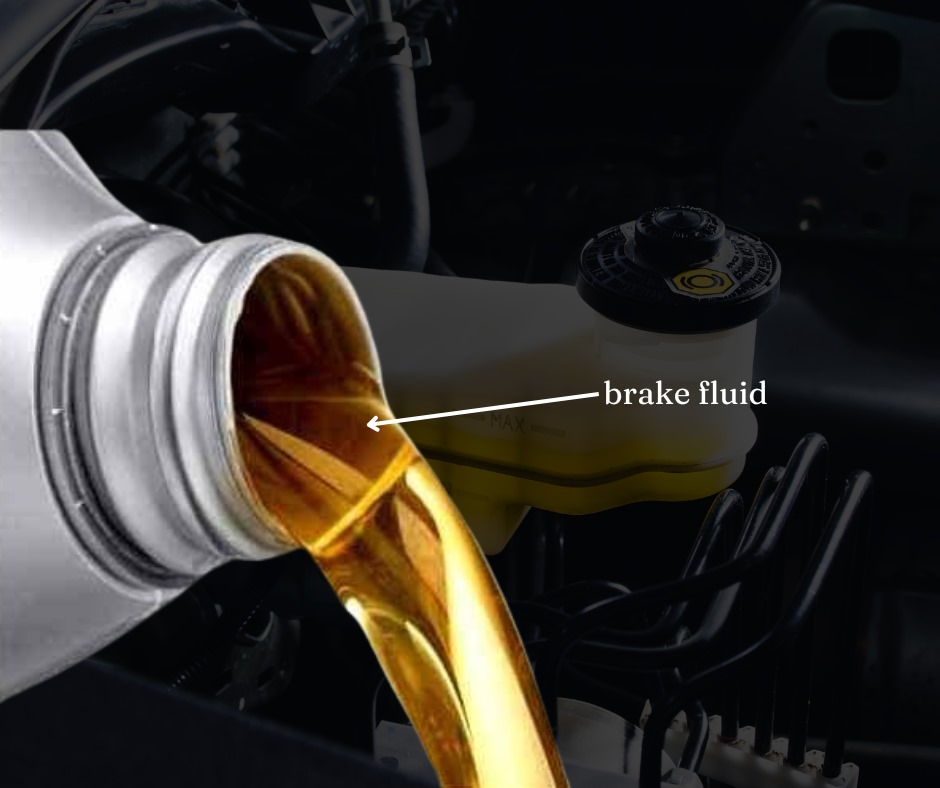Top Signs of Low Brake Fluid in Your Car

Discover the critical indicators that your vehicle may be running low on brake fluid, and why timely detection can save you from future hazards.
Understanding Brake Fluid and Its Role in Your Car
Brake fluid is a vital component in your car's braking system. It serves as the medium that transmits the force from your brake pedal to the brake pads, which then clamp onto the wheels to slow down or stop your vehicle. Hydraulic brake fluid is specially formulated to work within the high-pressure environment of the braking system and to withstand varying temperatures without boiling or freezing.
Regular maintenance of the brake fluid is essential for the proper function of your brakes. Over time, brake fluid can become contaminated with moisture and other debris, which can reduce its effectiveness and potentially lead to brake failure. Understanding how brake fluid works and its role in your car's safety is the first step in recognizing the signs that it may be time to top up or replace the fluid.
Warning Signs: What Your Brake Pedal Can Tell You
Your car's brake pedal is the direct link between you and your braking system, and it can provide the first clues that there may be a problem with your brake fluid. One common sign of low brake fluid is a spongy or soft brake pedal, which may feel like it sinks to the floor when pressed. This sensation indicates that there is air in the brake lines, which can occur when brake fluid levels drop and are not sufficient to maintain pressure.
Another sign to watch out for is a pedal that requires more force than usual to engage the brakes. This could mean that the brake fluid is not transferring the force effectively due to low levels or contamination. If you notice any change in the feel or responsiveness of your brake pedal, it's time to inspect your brake fluid and consider topping up.
The Impact of Discolored or Low Brake Fluid
Brake fluid should typically be a clear or slightly yellowish color. If you check the brake fluid reservoir and notice that the fluid is dark, cloudy, or has visible particles in it, this is a sign that your brake fluid is old and contaminated. Contaminants can diminish the performance of your brake system and even damage it over time.
In addition to discoloration, a low brake fluid level in the reservoir can also indicate a leak in the brake system or that the brake pads are wearing down. As brake pads wear, the caliper pistons extend further, requiring more fluid to maintain the same level of pressure. If you notice a consistent drop in the brake fluid level, it's critical to have your braking system inspected for leaks or worn components.
Dashboard Alerts: Heeding the Warning Lights
Most modern cars are equipped with a brake warning light on the dashboard that illuminates when there is an issue with the braking system. If this light turns on, it could indicate a low brake fluid level or a problem with the anti-lock braking system (ABS). It is vital not to ignore this warning light, as it can signify a serious issue that requires immediate attention.
Some vehicles may also have a specific warning light for brake fluid levels. Familiarize yourself with your car's dashboard signals and consult your owner's manual if you're unsure what a particular light means. If a brake-related warning light comes on, check your brake fluid levels promptly and consider visiting a mechanic if necessary.
Preventative Measures and When to Seek Professional Help
The best way to prevent brake fluid issues is to stay on top of regular maintenance. This includes checking your brake fluid levels periodically and having it changed according to your vehicle manufacturer's recommendations. By doing so, you can avoid the potential for brake failure and ensure your safety on the road.
If you're unsure about how to check your brake fluid or if you've identified one of the warning signs, it's best to seek professional help. A certified mechanic can perform a thorough inspection of your braking system, replace any worn components, and ensure that your brake fluid is at the appropriate level and free of contaminants. Remember, your brakes are critical for safe driving, so don't delay addressing any issues that arise.

 Loading..
Loading..